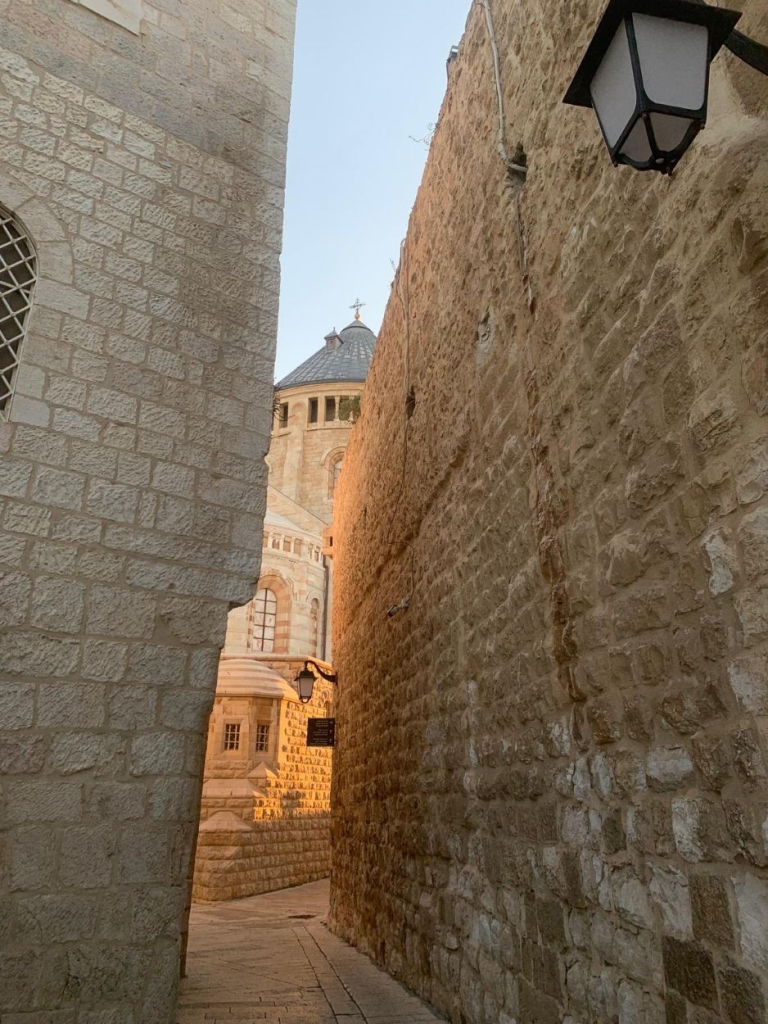The Heart of Christian Faith: Returning to Jerusalem from Rome
By Maryam Younnes | A Christian Lebanese-Israeli activist, advocating for Christians in the Middle East
As a Christian living in the Holy Land, I’ve watched with growing concern as the focus of Christian pilgrimage has increasingly shifted away from Jerusalem and towards the Vatican and the Pope. This trend, while seemingly a matter of convenience and Catholic tradition, risks severing the Christian narrative from its historical and geographic roots, thereby undermining the very presence of Christians in the Middle East.
For centuries, Jerusalem has been the undisputed heart of Christian pilgrimage. It is the city where Jesus taught, suffered, was crucified, and rose from the dead. Visiting the Church of the Holy Sepulchre, walking the Via Dolorosa, and seeing the Mount of Olives are not just acts of tourism, they are acts of physical and spiritual connection to the foundational events of our faith. This pilgrimage reinforces the core belief that our story began here, in this land, and that our faith is deeply rooted in the history and people of the Middle East.
However, the growing emphasis on pilgrimages to the Pope in Rome — sometimes at the expense of a journey to Jerusalem — threatens to replace this historical narrative with a more centralized, Vatican-centric one. While honoring the Pope and the Church’s leadership is a part of Catholic tradition, making it the primary destination for a spiritual journey shifts the focus from the actual “Holy Land” to the institutional head of the Church. This subtle but significant change reframes the Christian narrative. Instead of a story that unfolds in a specific, tangible place with a living Christian community, it becomes an abstract story tied to a distant European capital.
This detachment has real-world consequences. The Christian community in the Middle East is small and often faces significant challenges. The presence of pilgrims from around the world is a vital source of solidarity, economic support, and a powerful reminder to the local community that they are not forgotten. When pilgrims choose to travel to Rome instead of Jerusalem, they not only miss the opportunity to walk in Jesus’s footsteps, but they also miss the chance to stand in solidarity with the indigenous Christians who have maintained their faith and presence in this land for two millennia.
The Christian narrative, our story, is not a museum piece housed in Europe, it is a living tradition in the very places where it was born. We must remind our fellow believers that a pilgrimage to the Holy Land is an irreplaceable journey of faith. By choosing Jerusalem, we not only deepen our own spiritual lives but also affirm our commitment to the Christian presence in the Middle East, ensuring our story remains alive and connected to its true home.
The increasing detachment of Christian narratives from the Middle East is exacerbated by a significant decline in biblical and historical knowledge among younger generations in the West. This trend has been documented by various religious and sociological research organizations. For example, a 2014 study by the UK-based Bible Society found that a significant number of teenagers were unable to identify basic biblical stories, including the Nativity. More broadly, research from the Pew Research Center has consistently shown that younger Americans score lower on religious knowledge surveys compared to older generations.
This lack of knowledge is not just an issue of Christian history, it also contributes to the erasure of Jewish history from the narrative. The Biblical Archaeology Society and other theological scholars have noted a common disconnect where many Christians, especially younger ones, are unaware of Jesus’s roots as a Jew, a fact that is fundamental to both faiths. This ignorance of Jesus’s Jewishness not only diminishes the historical context of Christianity but also helps to sever the deep theological and historical ties between the two faiths, a connection that is critical to understanding the history of the Middle East. By failing to grasp these basic facts, younger generations risk not only losing their connection to their own religious heritage but also failing to recognize the interconnectedness of these ancient narratives that originated and continue to live in this land.






















